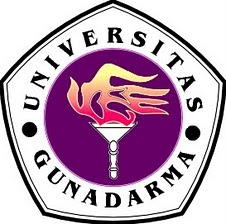Passive Voice
Half of New York’s Tech Workers Lack College Degrees,
Report Says
The fast-growing
technology industry in New York is often cited as a magnet for graduates of the
nation’s top universities. But a new report to be discussed in a speech
by a deputy mayor on Wednesday found that almost half of the technology jobs in
the city are filled by people without college degrees.
The report was
commissioned to show just how important the tech sector has become,
estimating that it accounts for nearly 300,000 jobs in the city, more than half
of them at companies in nontechnology businesses, such as finance and
advertising.
Alicia Glen, the city’s deputy mayor for housing and
economic development, is expected to highlight that overall finding when she
speaks to the Association for a Better New York.
The rising
importance of technology companies and the corporate use of technology have
been well documented. But
less noticed is how broad a range of opportunities technology has created for
people seeking work in the city, said Andrew Rasiej, the chairman of NY
Tech Meetup, one of the sponsors of the report.
The other sponsors of the report, which was prepared by
HR&A Advisors, include the Association for a Better New York, Citi and
Google.
Mr. Rasiej said that he and other entrepreneurs and tech
executives in the city hoped the administration of Mayor Bill de Blasio would
create more continuing education and job-training programs to prepare New
Yorkers for the sort of jobs the industry is creating. He said he would also
like the mayor to press for expanded high-speed access to the Internet at a low
cost.
A spokesman for Ms. Glen declined to say what policies she
would propose on Wednesday.
Ms. Glen, in a statement, called the tech industry “our
pipeline to the middle class” and added, “It’s our job to develop the work
force these fast-growing companies need so people from our schools and our
neighborhoods have a real shot at these good-paying jobs.”
At least one other city official appears to share that
view: The report was managed by Carl
Weisbrod before he left HR&A, a real estate consulting firm, to
accept Mr. de Blasio’s appointment as chairman of the city’s Planning
Commission.
The report’s author, Kate Wittels, the director of
HR&A, said “the spectrum of tech-related occupations — from programmers to
sales reps — is creating well-paying and quality jobs for New Yorkers at all
levels of educational attainment.”
Tech companies in the city employ about 140,000 people and
as many as 150,000 others have tech jobs in other companies, the report
estimates. About 44 percent of those jobs do not require a college degree, but
on average, they pay about 45 percent more than the typical hourly wage in the
city, according to the report.
Mr. Rasiej said that premium was partly because tech jobs
paid better and partly because technology companies tended to pay more than
companies in some other big industries in the city, such as health care and
retailing.
Many of the tech jobs are with large banks and media
companies that have relatively high pay scales. At Citi, more than 10 percent
of the company’s 17,000 jobs in the city are tech positions, said Melissa
Stevens, who is the head of Internet and mobile banking for Citi.
Ms. Stevens said she had “a huge team,” many of whom were
not trained as computer scientists or engineers. She added that she too was
“not a technologist.”
Indeed, she said she started at the bank 16 years ago in
the human resources department and moved to the digital side of the company
just eight years ago.
“Really, in an industry like ours, technology is at the
heart of everything we’ve done,” she said.
Many of the most lucrative opportunities are in
programming, a field where demand for talent outstrips the current supply, said
Avi Flombaum, the dean of the Flatiron School, which trains people in software
coding.
Mr. Flombaum, who dropped out of
college several years ago to create programming for a hedge fund, said all but
two of the 126 graduates of his 12-week course have found work. Their average
starting pay, he said, was $82,000.
Some of the students at the Flatiron
School did not attend or finish college and others are older adults looking to
switch careers, Mr. Flombaum said. “There are more programming jobs than there
are programmers right now,” he said.
Mr. Flombaum, who said he took
advantage of a $250,000 grant from the city to move to larger quarters near
Wall Street, gave the administration of former Mayor Michael R. Bloomberg high
marks for encouraging the development of the tech industry. Asked what he
wanted from the de Blasio administration, Mr. Flombaum said, “Stay out of the
way in terms of legislation or new laws.”
Correction: April 5, 2014
An article in some editions on
Wednesday about the state of the technology industry in New York City misstated
the number of Citi jobs in New York City. The company has 17,000 jobs, not
11,000.
Passive
Voice :
- - The fast-growing technology industry in New York is often cited as a magnet for graduates of the nation’s top universities (passive voice dengan simple present)
- - The report was commissioned to show just how important the tech sector has become (Passive voice dengan simple past)
- - The rising importance of technology companies and the corporate use of technology have been well documented (passive voice dengan present perfect tense)
- - But less noticed is how broad a range of opportunities technology has created for people seeking work in the city, said Andrew Rasiej (passive voice dengan simple past)
- - The report was managed by Carl Weisbrod before he left HR&A ( Passive voice dengan Simple Past)
